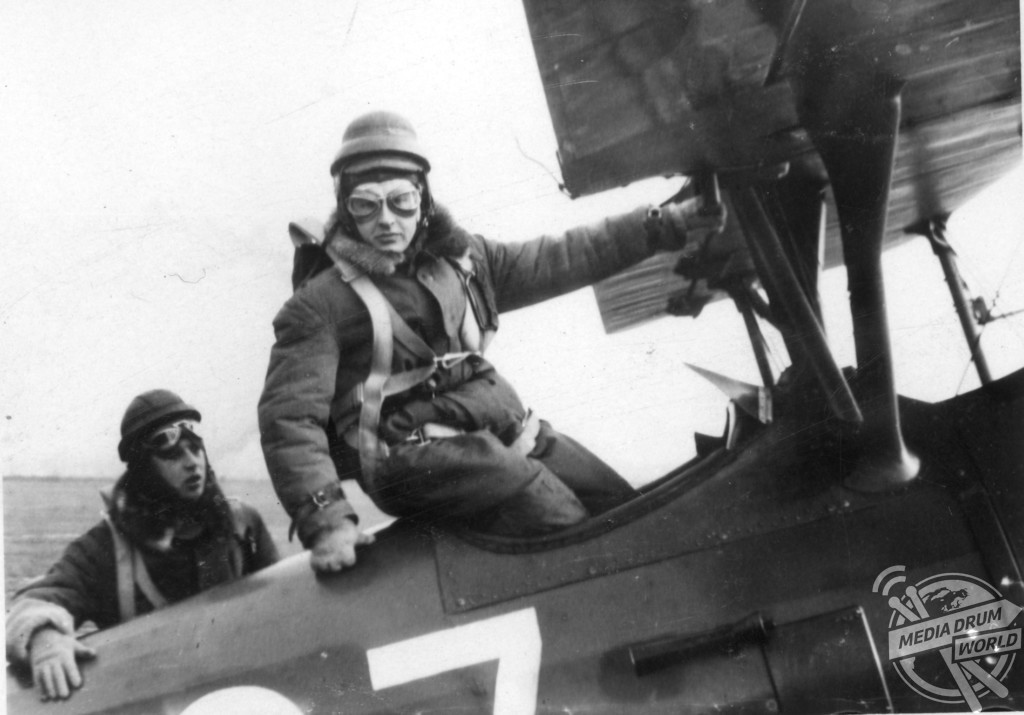By Mark McConville
THE FIRST fighter ace of WW2 was in fact Polish according to a thrilling new book detailing the little-known life of the first Pole to command British pilots and who faced execution by the Soviets for his gallantry.
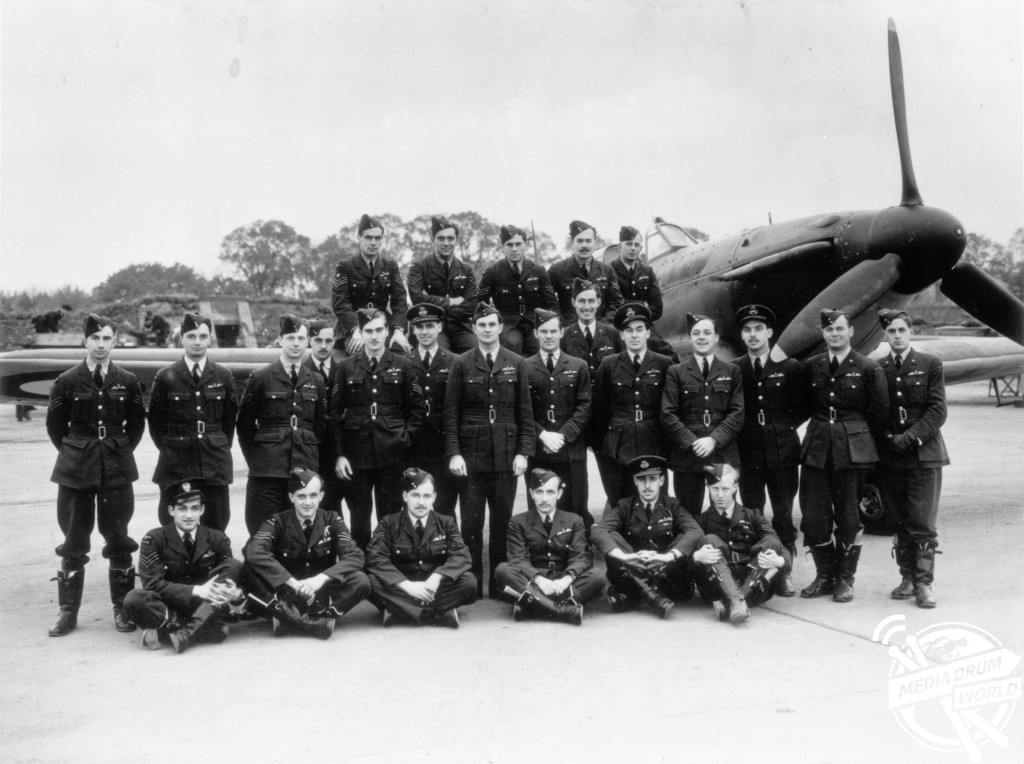
As well-as claiming to have downed over 22 enemy aircraft, Stanislaw Skalski became the Operating Commander of 601 County of London Squadron after Sqn Ldr John Stuart Taylor DFC and Bar was downed by an Italian Ju 87 on 12th July 1943.
As the UK was on the brink of being invaded, Skalski fought in the Battle of Britain for 501 Squadron and was credited with four planes shot down and one shared. He was also shot down himself and bailed out with severe burns which hospitalised him for six weeks.
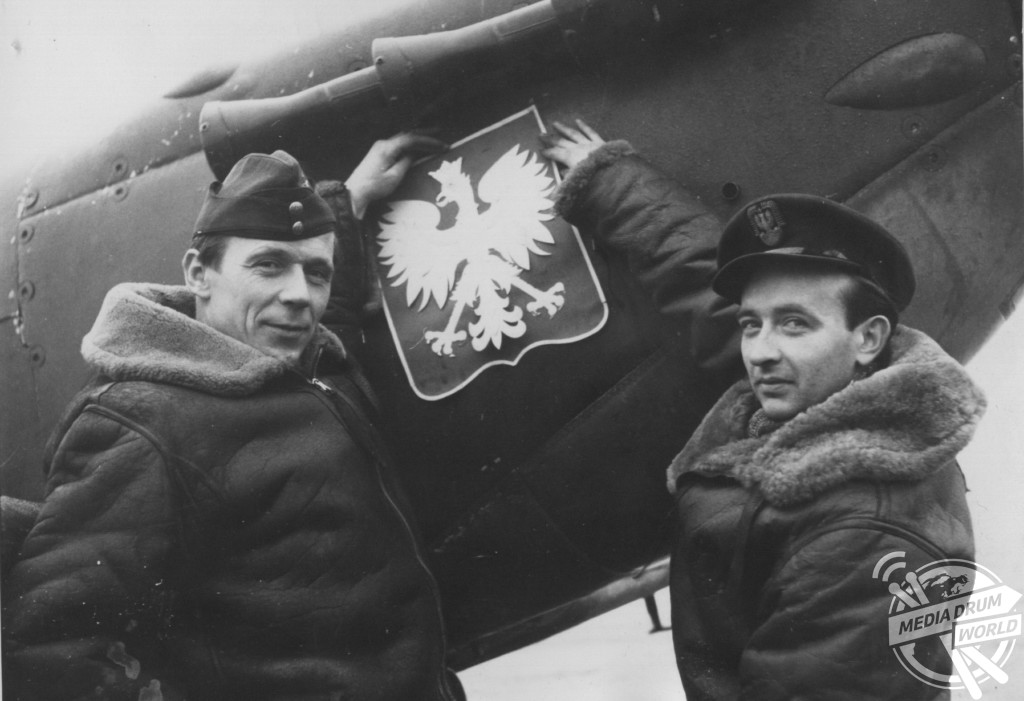
The details of his life and images which offer an insight into his incredible feats are included in a new book, Skalski: Against All Odds, by Franciszek Grabowski and published by Fonthill Media.
“The late Stanisław Skalski was the leading Polish fighter ace of all time,” he said.
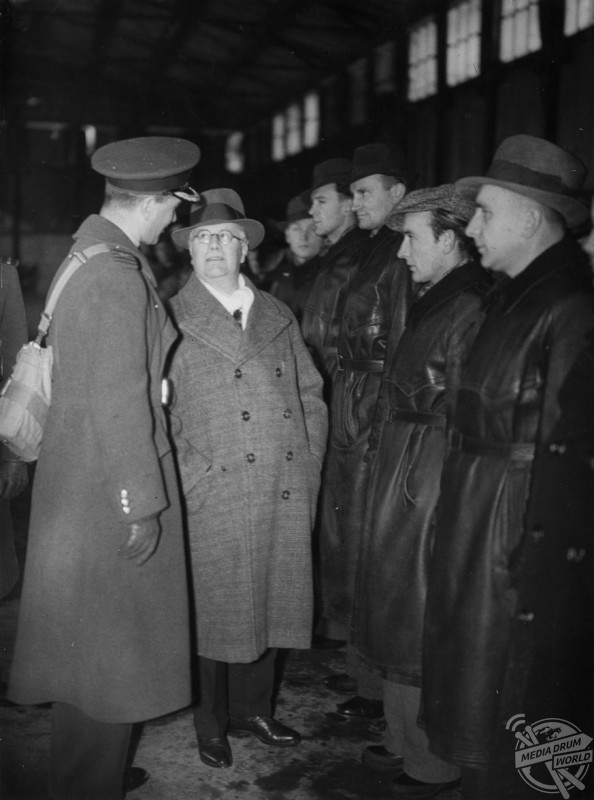
Polish airmen to arrive to Britain. This photograph, reproduced in the British press, was Skalski’s
media debut. S. Skalski / mediadrumworld.com
“He also had the distinction of being the first Allied ace of the Second World War, with a confirmed four individual and one shared victory during the Polish Campaign of 1939.
“His wartime achievements, as well as his post-war persecution, make him arguably the most distinguished of all Polish airmen and an icon of the Polish Air Force.”
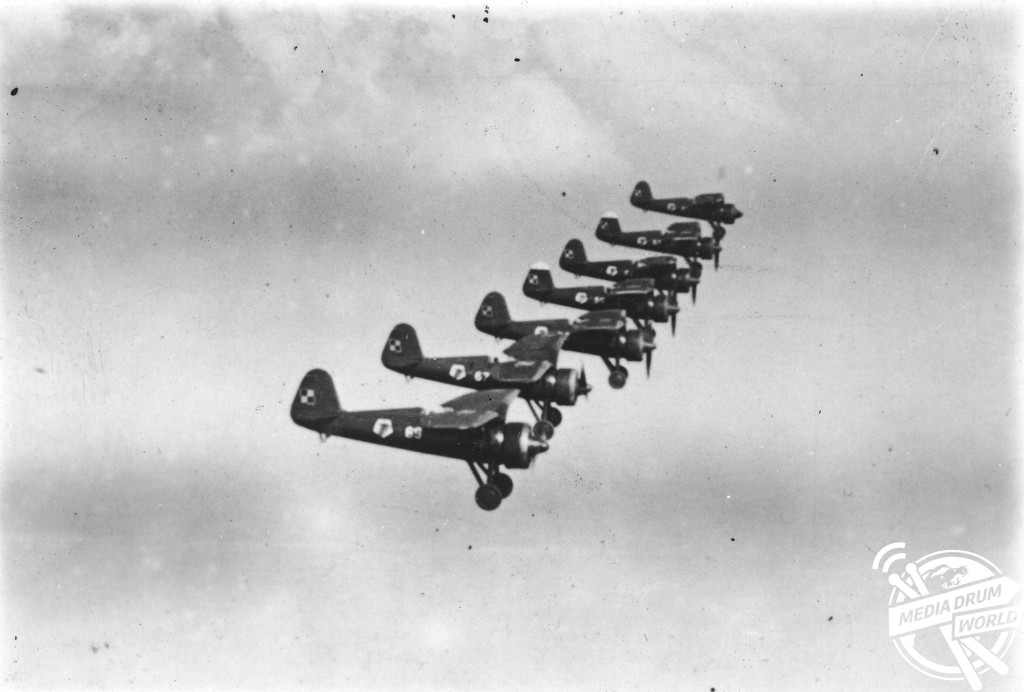
(from top): mjr pil. Leopold Pamuła; por. pil. Jerzy Słoński; ppor. pil. Zygmunt Kinel; ppor. pil. Jan
Falkowski; ppor. pil. Stanisław Skalski; ppor. pil. Anatol Piotrowski; ppor. pil. Kazimierz Woliński.
Section markings are noticeable on the tail units of some aircraft. S. Skalski / mediadrumworld.com
Stanislaw Skalski is officially credited with 18 and 11/12 victories and two probable victories according to official lists. Other sources, including Skalski himself, give the number of 22 and 11/12 victories. “Victories” was the term used to describe the destruction of enemy planes, while the crew themselves might have survived. Partial victories were awarded where pilots disputed exactly who had downed an enemy aircraft, and each party would agree to share a portion of the victory.
Despite his renowned ability Skalski also saved a German crew that had been shot down by one his squadron members on 1st September 1939.
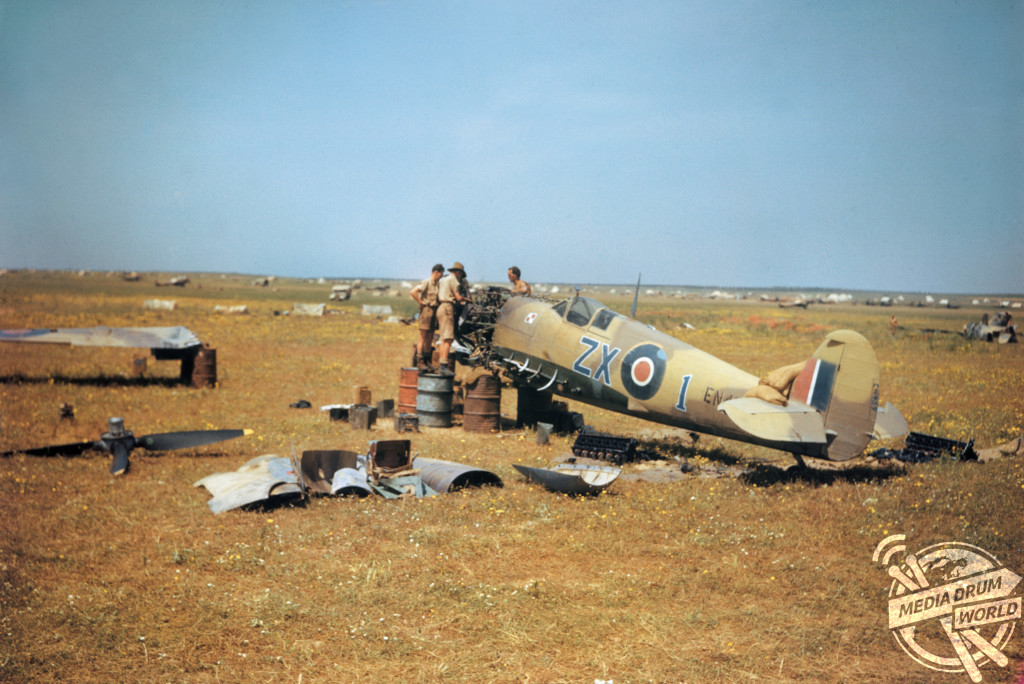
He landed next to the stricken aircraft, helped to bandage the wounded crew members and arranged to have them transported to a military hospital. In 1990 he met with the German pilot he had rescued on the first day of the war.
Skalski’s personal account of this remarkable act of kindness while fighting a war has been recorded in the book.
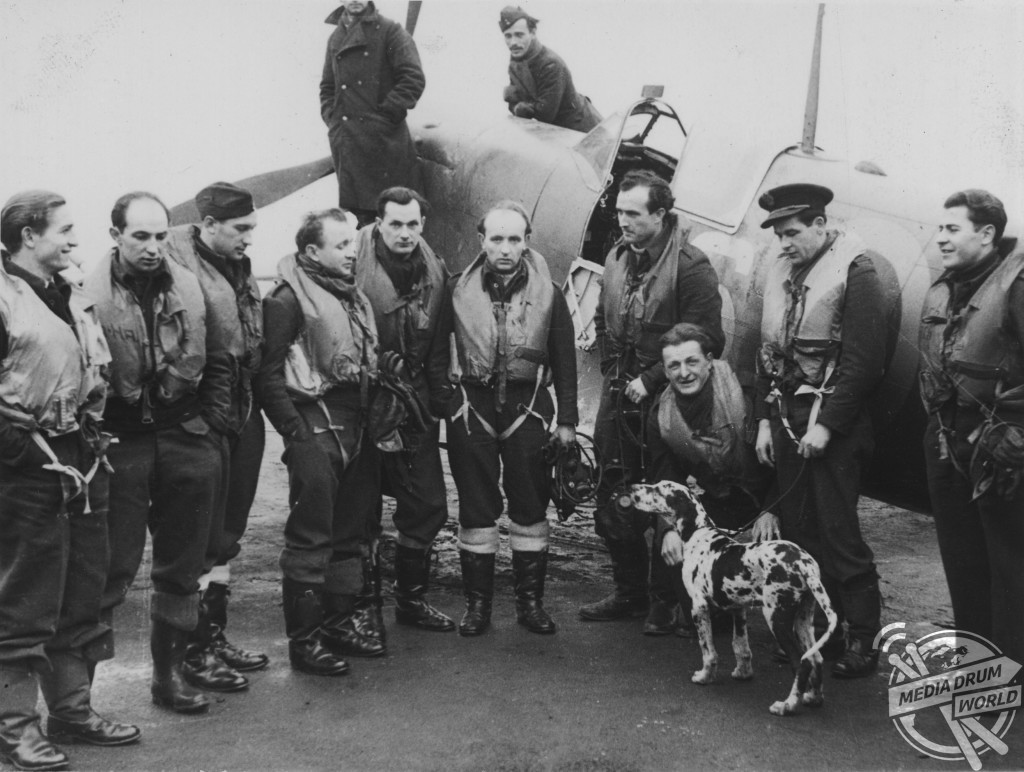
Horn, Sgt Bruno Kroczyński, F/O Stanisław Marcisz, F/O Bolesław Kaczmarek, P/O Grzegorz
Sołogub, S/Ldr Stanisław Skalski, F/Sgt Henryk Pietrzak, Sgt Wawrzyniec Jasiński, Tiger, his
master P/O Emil Landsmann, Sgt Marcin Machowiak pose by the skipper’s UZ-S. S. Skalski / mediadrumworld.com
“I found myself facing the first victim I had seen of the war,” he said.
“The German was lying on his back, covered in blood and unconscious. Foam covered his
bloodied open mouth and he grunted.
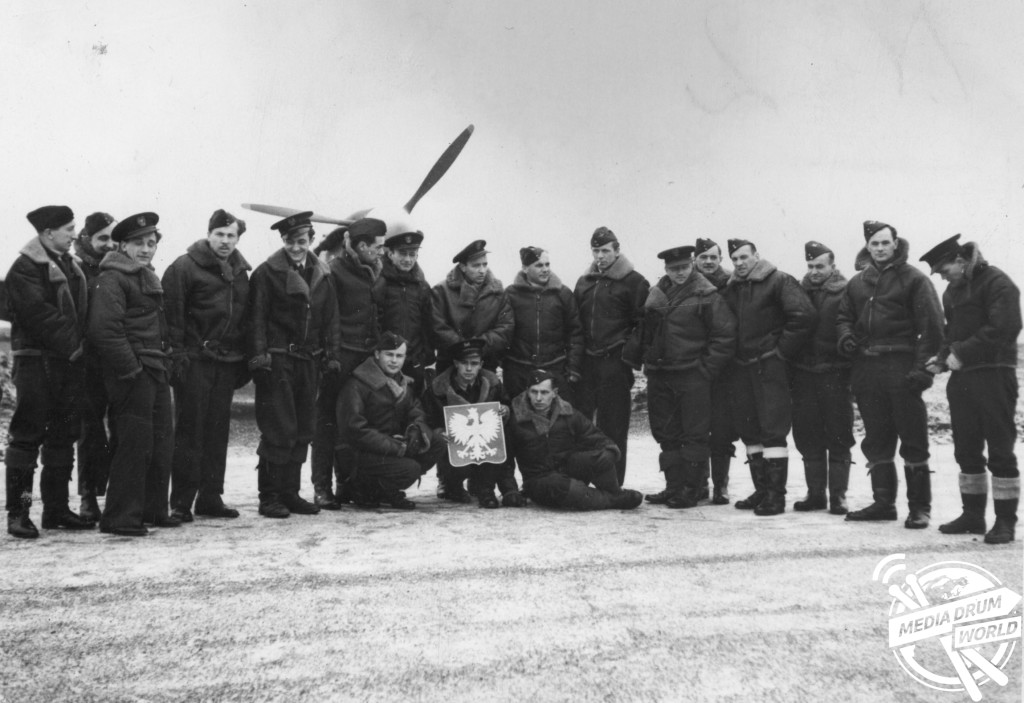
right): F/O Kazimierz Rutkowski, unknown, P/O Stanisław Kędzierski, F/O Witold Szyszkowski,
Sgt Władysław Potocki, F/O Ryszard Malczewski, F/O Bohdan Arct, F/Lt Stanisław Skalski, S/Ldr
Antoni Wczelik, F/Lt Tadeusz Czerwiński, F/O Bolesław Kaczmarek, F/O Edmund Krzemiński,
F/O Stanisław Marcisz, F/O Józef Żulikowski, P/O Grzegorz Sołogub, unknown.
Squatting (left to right): F/O Korneliusz Górniak, Sgt Jan Śmigielski, F/O Edward Jankowski. S. Skalski / mediadrumworld.com
“Just as were going to carry the wounded man, I raised my head and glanced towards some nearby bushes. I was convinced that something moved there.
“As I did I reached in my pocket for my pistol, but my hand found only a silver cigarette case. I realised that I dropped the gun on the ground when the alarm was announced.
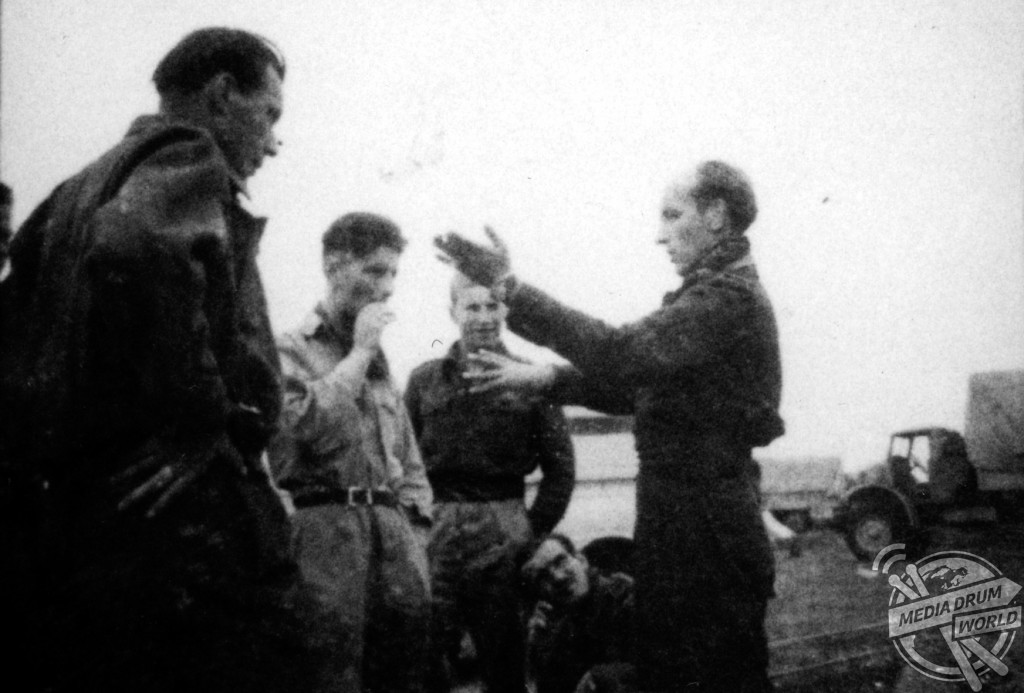
Pniak, F/Lt Horbaczewski, W/O Majchrzyk (?), and F/O Martel listen. S. Skalski / mediadrumworld.com
“Quickly, I drew the cigarette case, pretending it was a weapon, and turned toward the German. He moved, barely raised his arms, and dragging one leg behind him came slowly came out of the bushes.
“Only then did my fears seem funny to me. The wounded German was incapable of any hostile move or escape. For a short moment, our eyes met crossed.
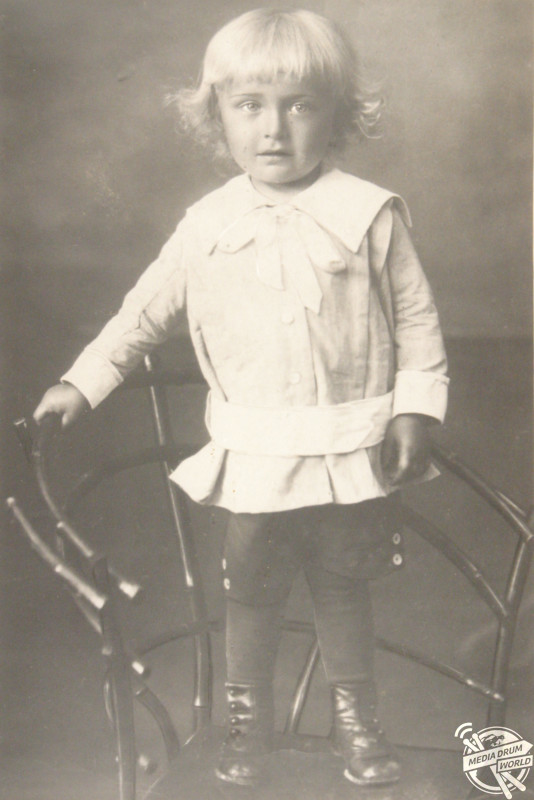
“My eyes showed nothing but perhaps surprise, in his I noticed a clear gratitude. For his smile,
I reciprocated with a smile. I knew what my human duty was and finished it (treating his wounds).
“The guilt in this tragedy belonged to someone else—those who had thrown us against each other.”
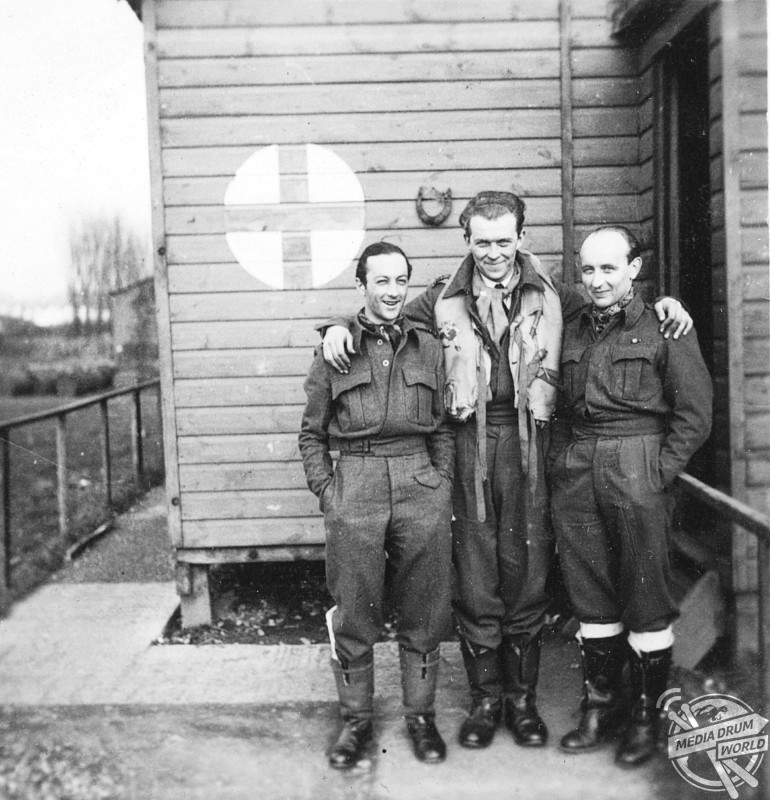
While in charge of 601 Squadron Skalski took part in the invasion of Sicily and invasion of Italy. After the war, he returned to Poland in 1947 and joined the Air Force of the Polish Army.
He was arrested in 1948 under false charges of espionage and sentenced to death. After three years waiting for his execution his sentence was changed to life imprisonment in Wronki Prison.
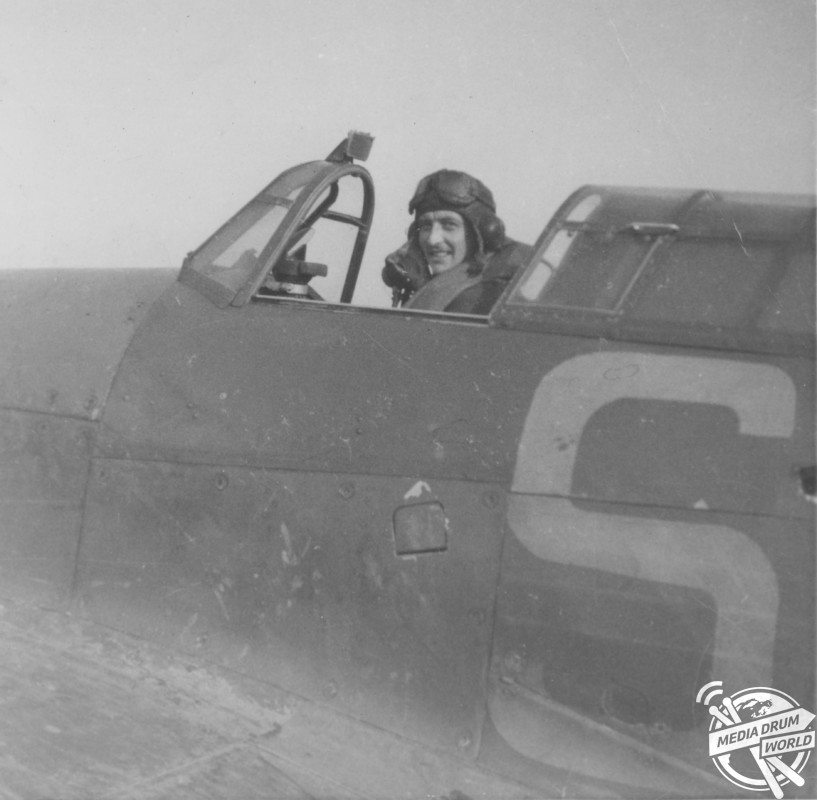
Skalski was only released in 1956 after the end of Stalinism in Poland and went on to serve at various posts in the Headquarters of the Polish Air Forces.
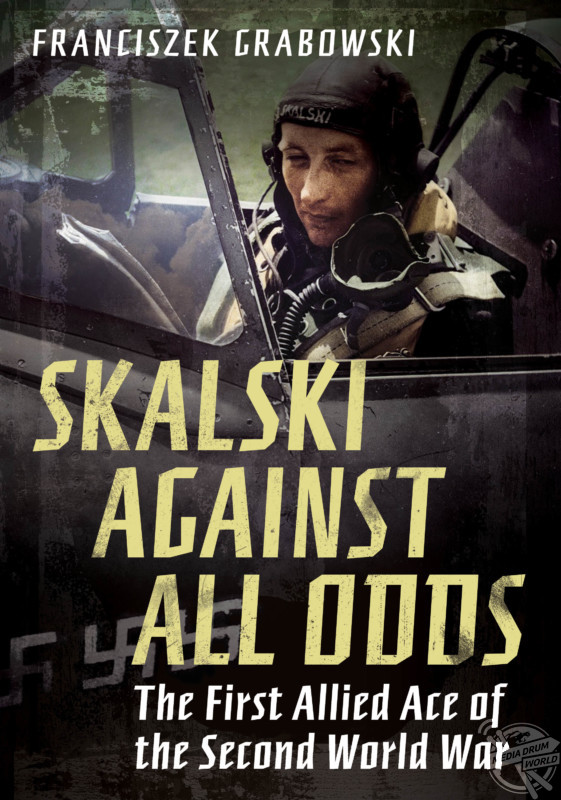
Skalski: against All Odds, by Franciszek Grabowski, is published by Fonthill Media. The hardback is available now for £20.

